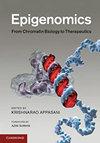利用人类表观基因组预测多因素疾病和症状的数据科学。
IF 3
4区 医学
Q2 GENETICS & HEREDITY
引用次数: 0
摘要
Tweetable 摘要 本文回顾了利用表观基因组数据预测多因素疾病和症状的机器学习模型,以及如何利用这些模型探索新的研究问题。本文章由计算机程序翻译,如有差异,请以英文原文为准。
Data science using the human epigenome for predicting multifactorial diseases and symptoms.
Tweetable abstract This article reviews machine learning models that leverages epigenomic data for predicting multifactorial diseases and symptoms as well as how such models can be utilized to explore new research questions.
求助全文
通过发布文献求助,成功后即可免费获取论文全文。
去求助
来源期刊

Epigenomics
GENETICS & HEREDITY-
CiteScore
5.80
自引率
2.60%
发文量
95
审稿时长
>12 weeks
期刊介绍:
Epigenomics provides the forum to address the rapidly progressing research developments in this ever-expanding field; to report on the major challenges ahead and critical advances that are propelling the science forward. The journal delivers this information in concise, at-a-glance article formats – invaluable to a time constrained community.
Substantial developments in our current knowledge and understanding of genomics and epigenetics are constantly being made, yet this field is still in its infancy. Epigenomics provides a critical overview of the latest and most significant advances as they unfold and explores their potential application in the clinical setting.
 求助内容:
求助内容: 应助结果提醒方式:
应助结果提醒方式:


